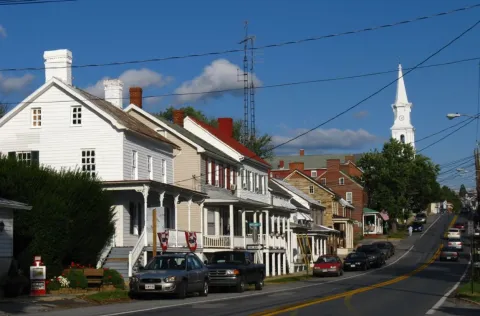
Maryland boasts a high quality of life, with access to a wide range of amenities and services. The state has a vibrant mix of urban areas like Baltimore and the suburbs of Washington, D.C., as well as quaint small towns and coastal communities. The availability of outdoor activities, including hiking, fishing, and boating, along with a rich historical and cultural heritage, contributes to a fulfilling lifestyle.
Comparison to National Average: Maryland generally ranks above the national average in overall quality of life due to its strong economy, excellent healthcare, and educational institutions. The state also offers numerous recreational opportunities and a well-developed public transportation system, particularly in the D.C. metropolitan area.
The cost of living in Maryland is relatively high, particularly in urban areas and close to major cities like Washington, D.C. Housing costs, in particular, are above the national average, especially in sought-after areas like Montgomery County. However, the state's high median income helps offset these costs.
Comparison to National Average: Maryland's cost of living is above the national average, largely due to higher housing and healthcare costs. However, the state does not tax Social Security benefits, which can be a significant advantage for retirees.
Maryland has a varied crime rate, with some areas experiencing higher levels of crime than others. Urban areas, like Baltimore, have higher crime rates, while many suburban and rural areas are relatively safe. The state's law enforcement agencies are proactive in maintaining safety and security.
Comparison to National Average: Maryland's crime rate is slightly above the national average, primarily due to higher crime rates in specific urban areas. However, many suburban and rural communities are safer than the national average, making them attractive options for retirees.
Maryland is home to some of the nation's top healthcare institutions, including the renowned Johns Hopkins Hospital and the University of Maryland Medical Center. The state offers a wide range of medical services and specialized care, making it a favorable location for retirees needing healthcare services.
Comparison to National Average: Maryland excels in healthcare access and quality, often ranking above the national average. The state's healthcare infrastructure is robust, providing residents with excellent care options.
Maryland's overall tax burden is relatively high compared to other states, placing it among the states with a heavier tax load on its residents. The state has a progressive income tax structure, meaning higher earners pay a higher percentage of their income in taxes. Additionally, Maryland imposes substantial property taxes and has a state sales tax that, while moderate, contributes to the overall tax burden.
When compared to other states, Maryland's tax burden is higher than the national average, particularly due to its income and property taxes. However, it is balanced by relatively modest sales taxes and certain tax credits available to residents. Despite its higher tax rates, Maryland also offers a range of public services and benefits, which some residents may find offsets the higher costs.
Maryland has a rich cultural scene, with a blend of historical attractions, museums, theaters, and music venues. The state's proximity to Washington, D.C., provides easy access to additional cultural and historical sites. Maryland is also known for its seafood, particularly blue crabs, and has a vibrant culinary scene.
Comparison to National Average: Maryland's cultural offerings are above the national average, especially given its access to national landmarks and cultural institutions in nearby Washington, D.C. The state's diversity also contributes to a rich and varied cultural experience.
Maryland experiences a humid subtropical climate, with four distinct seasons. Summers are typically hot and humid, while winters can be cold with occasional snowfall. The state enjoys a long spring and fall, which are often mild and pleasant.
Comparison to National Average: Maryland's weather is relatively moderate compared to the national average. The state experiences fewer extreme weather events than many other parts of the country, making it a comfortable place for retirees.




